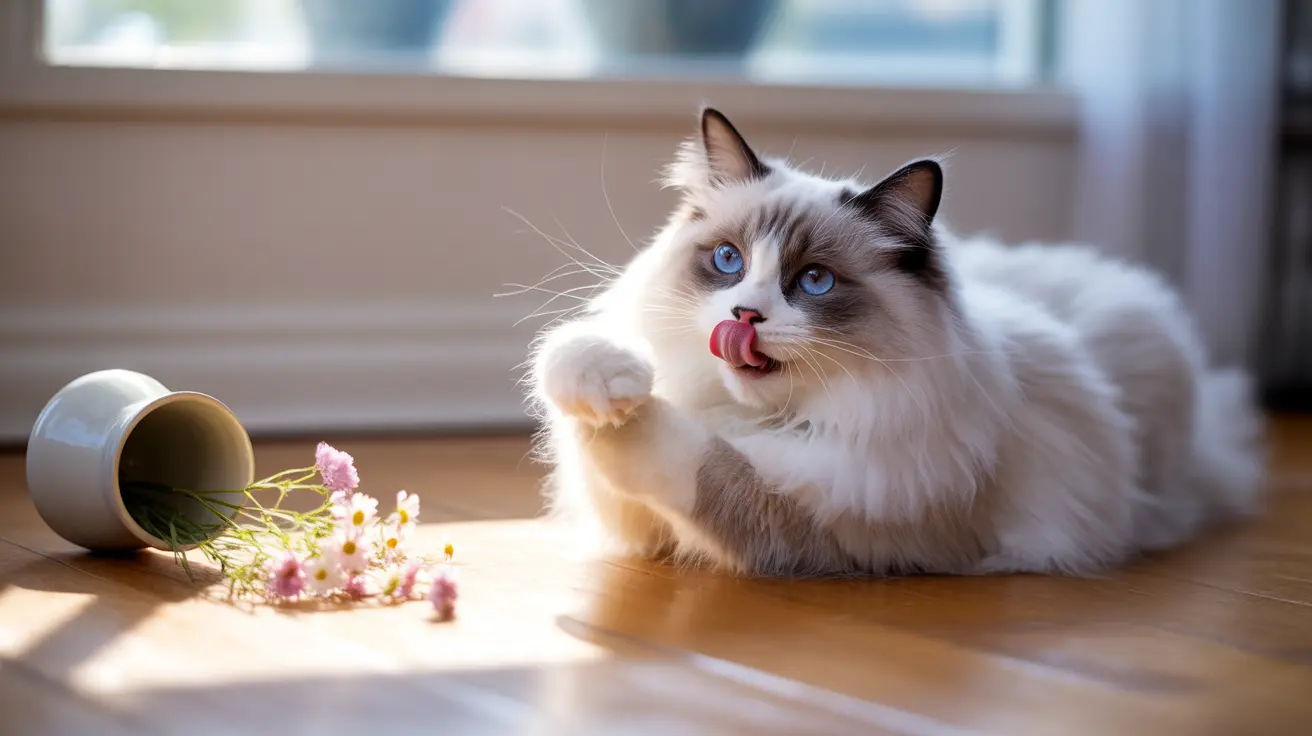Have you ever watched your cat miss a jump, stumble, or knock something over, only to dart away and hide? While these behaviors might seem like signs of embarrassment, the reality behind feline emotions is far more complex and fascinating than you might think.
In this comprehensive guide, we'll explore whether cats truly experience embarrassment, decode their seemingly self-conscious behaviors, and understand what's really happening in your feline friend's mind during those awkward moments.
The Science Behind Feline Emotions
Scientific research indicates that cats experience a range of basic emotions, including fear, happiness, anxiety, and affection. However, embarrassment - a complex, self-conscious emotion requiring awareness of social judgment - likely isn't part of their emotional repertoire.
Cats lack the cognitive complexity required for true embarrassment, which involves understanding social norms and caring about others' opinions. What we interpret as embarrassment is usually a combination of instinctual responses and learned behaviors.
Common Behaviors Mistaken for Embarrassment
Quick Retreats and Hiding
When your cat dashes away after a clumsy moment, they're not trying to save face. This behavior is actually a survival instinct - checking for potential threats or responding to unexpected events in their environment.
Immediate Grooming
That sudden burst of grooming after an awkward incident isn't your cat trying to regain their dignity. Instead, it's a self-soothing behavior known as displacement grooming, helping them cope with stress or uncertainty.
Understanding Your Cat's Real Reactions
What we perceive as embarrassment typically falls into three categories:
- Startle responses to unexpected events
- Stress-relief behaviors
- Reactions to changes in human behavior or tone
These responses are rooted in your cat's natural instincts rather than complex social emotions like embarrassment.
How to Support Your Cat During "Awkward" Moments
While cats may not feel embarrassed, they can experience stress or anxiety during clumsy moments. Here's how to help:
- Maintain a calm, neutral response
- Provide easy access to safe hiding spots
- Avoid laughing or making sudden movements
- Consider using calming pheromone products
The Role of Human Interpretation
Our tendency to anthropomorphize - attribute human characteristics to animals - often leads us to misinterpret normal feline behaviors as embarrassment. Understanding your cat's true emotional capabilities helps build a stronger bond based on their actual needs rather than human projections.
Frequently Asked Questions
Do cats actually feel embarrassed, or are their behaviors just stress responses?
Cats don't experience embarrassment as humans do. Their reactions to awkward situations are primarily stress responses, survival instincts, or reactions to environmental changes.
What signs might make me think my cat is embarrassed after an accident or clumsy moment?
Common behaviors that might seem like embarrassment include running away, quick grooming, hiding, or avoiding eye contact. These are actually stress responses rather than signs of embarrassment.
How can I tell if my cat is anxious or fearful rather than embarrassed?
Look for physical signs like flattened ears, dilated pupils, low tail position, or tense body posture. These indicate anxiety or fear rather than embarrassment.
Is it harmful to laugh at my cat when it makes a mistake or behaves awkwardly?
While cats don't understand laughter as mockery, sudden loud noises or changes in your behavior can cause stress. It's better to maintain a calm, reassuring presence.
How can I help my cat feel safe and calm after a stressful or embarrassing-seeming situation?
Provide a quiet, safe space, maintain normal routines, speak softly, and avoid forcing interaction. Let your cat return to normal activities at their own pace.
Conclusion
While cats don't experience embarrassment in the way humans do, they certainly have rich emotional lives and complex behaviors. Understanding the true nature of their responses helps us become better cat parents and strengthens our bonds with our feline companions.
Remember, what might look like embarrassment is usually your cat processing unexpected events or responding to stress. By providing a supportive, understanding environment, you can help your cat navigate these moments with confidence.






